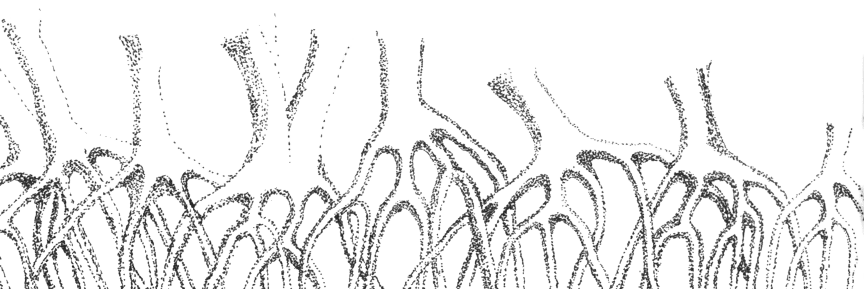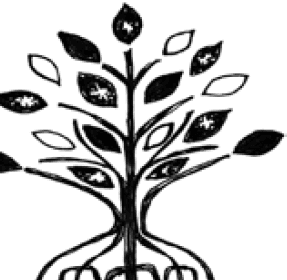The Decades Never Leave Us
Connie J. Maraan
The Work Begins
She arrived in my life as my new boss.
In 1984, I returned to work at De La Salle University after living three weeks of frat life at the national workshop in Dumaguete. That she was to be my supervisor somehow sealed my fate in continuing on with the writing life I’d been encouraged by the Tiempos to pursue, because she herself had been at Silliman University for years, and knew many of the writing “family members” I would gradually meet. I learned that she was a Virgo, and since I was a Capricorn I sensed that ours would be a good relationship, knowing she would likely be the more social one while I could watch quietly from the sidelines.
She brought a new kind of energy into the unit I’d worked in at the Research Center for five years, having routinely provided content for the weekly University newsletter and copyediting departmental journals. Now, together with Fanny, who came on board for book designing, we would be working on projects with a farther reach. We would no longer merely be a publications office, but The University Press. The most exciting of the pioneering projects we worked on through her efforts were E. San Juan’s Ruptures, Schisms, Interventions: Cultural Revolution in the Third World and Alfredo “Freddie” Salanga’s A Personal Chronicle: 1971-1987, the latter an opportunity to forge ties with the “Davao Mafia” and grow hyper-acidic from endless nights of coffee consumption.
Clearly we were kindred souls, and even if we met daily at the Center, we would send each other notes, further strengthening our bond. While I was still in the honeymoon phase of graduate studies, she was more pressured to complete hers because she was teaching and held an administrative post. A letter that she wrote to me spoke of her struggles.
The past few days when I felt the pressure of finishing the requirements for my course in order to deal, once and for all, with my incomplete grade…I have focused my energies on the task, almost in the same way I focus my energies on writing a poem. During such times, the edges of reality recede and I am totally present in the act, the process of creating. Thus, my desire to talk with you can only fulfill itself now, in this form, because half-listening or half-talking would then have been psychically destructive.
On the envelope flap she had written words from Simone Weil: “Absolute Attention is Prayer.”
Travel, Men, More Travel
In the time that followed, she was in flight, writing to me at the Press via post cards from Taipei, Frankfurt, Saitama, Bellagio, Cambridge, and Winnipeg.
She generously endorsed me to represent the country at the 1992 Asian Women’s Conference in Japan, the year after she’d attended. At that point, we had been rooting for each other as we navigated difficult relationships, and her gesture of facilitating my visit to Tokyo was deeply appreciated. It likely spared me from impending PTSD, but I can remember this period differently, by seeing it as she did then.
You and _____ are a beautiful couple because you have a love so selfless! It is a wonderful gift to witness its growing, and to be part of the process, in some magical, mystical way. You and I know that our faith in this loving is the secret of its power.
Astonishingly, we survived those years and its battle scars, and later in the decade reunited when I followed her to join the faculty of the Literature Department. Though I never felt that teaching was my calling, she brought me along for “extracurricular activities,” such as training writers at an NGO in Bohol, and returning to Silliman to panel for a new batch of fellows. On Leon Guinto we would attend events hosted by NURSIA at my alma mater St. Scholastica’s College, and indulge in decadent pastas and the infamous Sun Goddess dessert at the beloved women’s café. In Cavite I helped arrange our visits to the Geronimo B. Reyes Museum in General Trias and lunch at Sonya’s Garden in Alfonso, as we hit the road with travel buddies Sue, Danny and Br. Hansel. “Being busy” was our middle name.
Leavetaking
She was the first person who came to console me at the hospital when my mother suffered a stroke in 2001.
Needless to say, that would be a decade that changed my station in life. I took a year off from teaching, eventually leaving the Department for good, and taking on a part-time job back at the Research Center. We thus saw less and less of each other as I spent more time at home for caregiving. It was a time when a number of our friends had lost their mothers, and she would also lose her father to illness. And, while I was thankful for the years that I was able to make up lost time for, my mother, too, passed away in 2009.
It was she and Sue who introduced me to what would become my mother’s all-time favorite book: Sacred Space by the healer Denise Linn. As the new millennium approached, before New Age practices and Marie Kondo had become trends, my mother was merrily energizing the house by following the book’s myriad instructions. It is for this reason that I now understand what likely happened the morning I arrived home after spending a night “parked” in waist-high floodwater on Zobel Roxas.
She and I had intended to reward ourselves with dinner at Kamameshi House after a particularly grueling week in the Department, when we were caught in the downpour. There was no way I could have even drove her to her home in Mandaluyong with the whole of Metro Manila under water. When the floods receded and traffic started moving, I suggested we catch some sleep at my house before she make any attempts to travel.
Knowing she’d be comfortable in our guest room, which was rarely occupied, I immediately started clearing it when we got home. But my mother, who had always been fond of her, had decided that only my room would be good enough for our special guest, the source of the cherished volume on generating Sacred Space. I was none too pleased to be displaced from my private quarters after a night of sitting behind the wheel of our second-hand Corona. But I can laugh it off now, here with the book still marked by ribbons on pages my mother felt were vital. Indeed we had had a special guest that morning, one I had too quickly forgotten had shared in my misery throughout a night of interminable rain.
Invitation
Our more recent “bonding moments” came when I received an invitation from her to document proceedings at the IYAS workshop in Bacolod in 2014. This was a delightful reunion, not only for the chance for me to finally visit Negros, but also to get to catch up with Grace, Danny, Dinah, and John, and especially Elsie and Rayboy, who I had not seen since we were fellows in Dumaguete. In the mornings she would find me faithfully doing the rounds at the USLS Oval, and we would brisk walk together to work off all of the local delicacies we would be fed throughout our stay.
Later, she invited me to join a study group that focused on Buddhist sutras, at the Fo Guang Shan Mabuhay Temple. I especially benefitted from our meditation sits guided by Shifu Yung Ling who would instruct us in Mandarin, and who I imagined I was following as I renewed my practice in the early months of the pandemic. Our visits at the Temple were an especially happy time when we were joined by our resident Bodhisattva Bimboy, on the occasions he had the time to join us in the zendo.
I started to absent myself from the reading group when work and other obligations became difficult to manage, again drifting away from chances to meet with her. So it surprised me when she sent me a message asking if I could join a dinner to celebrate her birthday in 2019. It surprised me because it was for “a few good friends” from school and, given the many other colleagues I knew she was close to or at least saw more often, I had not expected to be one of them. But it seemed like old times, as I offered her my gift of Japanese KitKats, and May Ann gamely led me through the buffet to the cheese room and Indian fare.
That was the last time we indulged in merrymaking together, in the life we knew before quarantine.
How It’s Going
In our sixth decade on the planet, and the fourth since the writing vocation brought us together, she continues to ensure our connections are strong. Even through the lockdown, she asks how I am every so often, sends invites to her students’ virtual presentations (even if poor connectivity usually prevents my participation), and asked her rider neighbor to deliver sweet treats to me last Christmas.
Once, many years ago, she wrote to me on a post card:
One has to be truly emptied to take all this bounty in, every day, every moment.
There are many stories to tell now.
When I come back, we shall sit on our rocking chairs and tell them.
We will, Marj. I can already see it.
Till that time, I will be here, waiting.
Connie J. Maraan
21 August 2021








